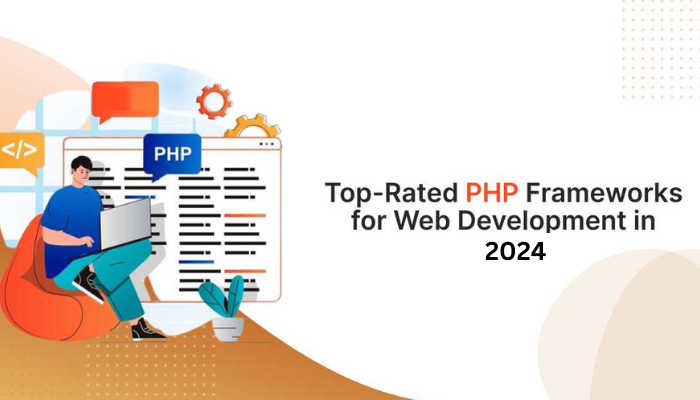Are you ready to embark on a journey into the dynamic world of Latest Frameworks in PHP web development? Look no further! In this comprehensive guide, we’re diving into the realm of Latest Frameworks in PHP – the driving force behind modern web applications. Whether you’re a seasoned developer or just stepping into the coding arena, understanding the top Latest Frameworks in PHP for web development in 2024 is essential. So, buckle up as we explore the ins and outs of these Latest Frameworks in PHP, unraveling their benefits and helping you make an informed choice.
Why PHP Frameworks Matter
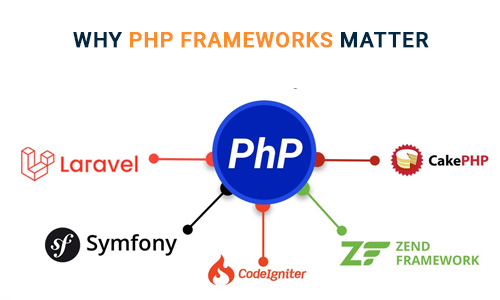
Before we delve into the specifics, let’s grasp why Latest Frameworks in PHP have become a cornerstone of web development. Imagine a toolbox filled with pre-built components and features that streamline the development process. That’s precisely what Latest Frameworks in PHP offer! They’re like the blueprint of a skyscraper, guiding developers through every step of the construction while ensuring efficiency, security, and scalability.
Choosing the Right Framework: Key Considerations
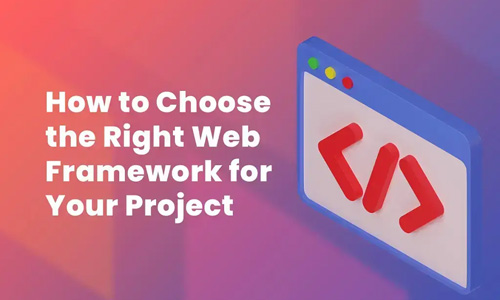
Picking the perfect Latest Frameworks in PHP is akin to choosing the right tool for a task. Here are the key factors to consider:
1). Project Requirements and Scope:
- Tailoring the Framework to Your Project’s Needs
- Lightweight vs. Robust: Which Suits Your Project?
2). Learning Curve and Developer Familiarity:
- Balancing Familiarity with Exploring Innovation
- New Frameworks: Fresh Perspectives, New Features
3). Community Support and Documentation:
- The Importance of a Supportive Community
- Comprehensive Documentation: Your Ultimate Guide
4). Performance and Scalability:
- User Experience and Framework Performance
- Performance Optimization Features: A Must-Have
5). Maintenance and Long-term Support:
- Staying Bug-Free and Secure with Regular Updates
- Long-term Support: The Pillar of Stability
6). Cost and Licensing:
- Evaluating Costs and Licensing Terms
- Budget Alignment and Long-term Sustainability
1). Laravel: The Artisan’s Choice
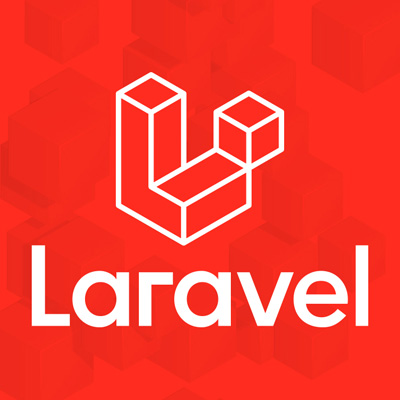
Laravel takes the crown as the king of Latest Frameworks in PHP. It’s a popular choice for both beginners and experienced developers due to its elegant design and user-friendly nature. Laravel’s learning curve is gentle, making it perfect for those new to programming. It offers a range of inbuilt features such as the Blade Templating Engine, automated tasks with Artisan, and an intuitive database manipulation tool called Eloquent ORM.
Pros:
- Elegant and feature-rich framework.
- Laravel Blade Templating Engine for efficient views.
- Automated tasks and simplified database migrations with Artisan.
- Enhanced monitoring with Laravel Horizon and Telescope.
- Intuitive database manipulation with Eloquent ORM.
Cons:
- Steep learning curve for some complex features.
- Customization limitations in certain cases.
- Larger footprint compared to micro frameworks.
Why Should You Consider Laravel?
- Easy-to-learn framework, suitable for beginners.
- Highly popular within the Latest Frameworks in PHP community.
- Abundant training materials available.
- Provides a simple unit for testing.
- Great for rapid application development.
2). Symfony: Powerful and Flexible
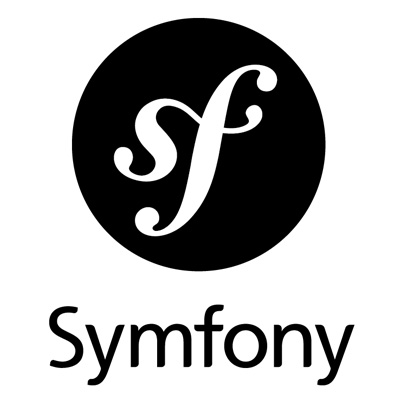
Symfony is known for its advanced features and customizable nature. Although it has a steeper learning curve, its strong community and extensive documentation make learning easier. Symfony’s reusable components simplify tasks like form creation and authentication. It’s a great choice for large-scale applications and offers long-term support releases.
Pros:
- Highly flexible and customizable.
- Stable and robust for large-scale enterprise applications.
- Mature ecosystem with a large developer community.
- Comprehensive testing framework and excellent documentation.
Cons:
- Increased memory consumption and performance overhead.
- Reliance on code generation leads to a larger codebase.
- Dependency management considerations.
Why Should You Consider Symfony?
- Feature-rich framework with advanced capabilities.
- Offers long-term support releases.
- Extensive bundle library for additional functionality.
- Official training courses and certifications available.
3). Yii 2: A Balance Between Performance and Ease
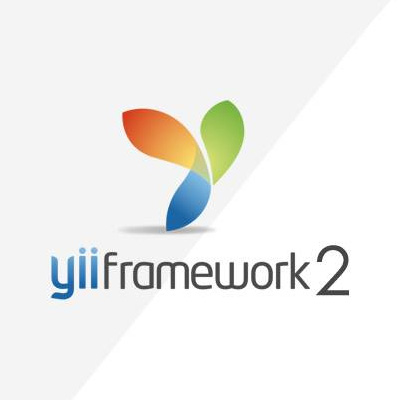
Yii 2 strikes a balance between performance and ease of use. With a focus on fast results, it excels in AJAX and caching. Its database modeling features eliminate repetitive SQL queries. Yii 2 offers efficient error handling and seamless AJAX support, making it a solid choice for efficient web development.
Pros:
- Exceptional performance with fast execution.
- Built-in security features for enhanced application security.
- Emphasis on rapid development with code generation tools.
- Active community and comprehensive documentation.
Cons:
- Customization complexity in some cases.
- Limited built-in features compared to other frameworks.
- Dependency on code generation for some functionalities.
Why Should You Consider Yii 2?
- Efficient error handling and AJAX support.
- Favored by developers for fast results.
- Community-driven and supported framework.
- Seamless integration with third-party components.
4). CakePHP: A Versatile Classic
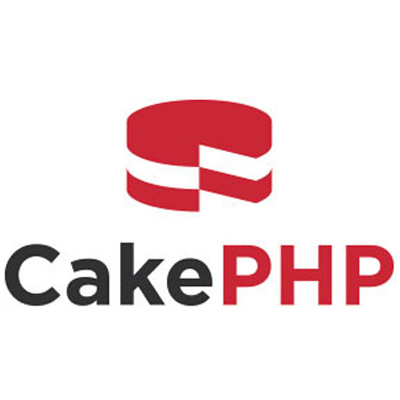
CakePHP, a veteran in the PHP framework world, boasts convention-based development and a stable MVC pattern. It’s ideal for those who value code organization and built-in security features. While it might not be as flexible as some other frameworks, CakePHP offers seamless extension capabilities and is well-suited for those who prefer zero-configuration setups.
Pros:
- Convention-based development for streamlined coding.
- MVC pattern for organized code structure.
- Built-in security features for enhanced protection.
- Active community and extensive documentation.
Cons:
- Limited flexibility compared to some frameworks.
- Smaller ecosystem when compared to Laravel or Symfony.
- Limited support for certain database systems.
Why Should You Consider CakePHP?
- Seamless extension capabilities with plugins and components.
- Zero-configuration setup for quick starts.
- Support for AJAX functionality.
- Built-in validation features for convenience.
5). CodeIgniter: Lightweight and Efficient
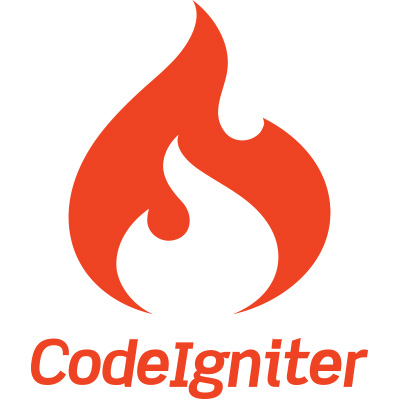
CodeIgniter’s lightweight nature and beginner-friendly interface make it a go-to choice for quick project development. While it might lack some built-in features, it follows the MVC pattern and offers flexibility in coding styles. It’s perfect for developers who want to minimize coding requirements while maintaining exceptional performance.
Pros:
- Lightweight and fast performance.
- Beginner-friendly framework.
- Follows the Model-View-Controller (MVC) pattern.
- Highly flexible for developers’ preferred coding style.
Cons:
- Limited built-in features compared to some frameworks.
- Slower release cycle in comparison.
- Smaller ecosystem of extensions and plugins.
Why Should You Consider CodeIgniter?
- Minimized coding requirements for rapid development.
- Emphasizes exceptional performance.
- Comprehensive framework in a compact package.
- Offers built-in security tools.
6). Laminas: The Reusable Component Framework
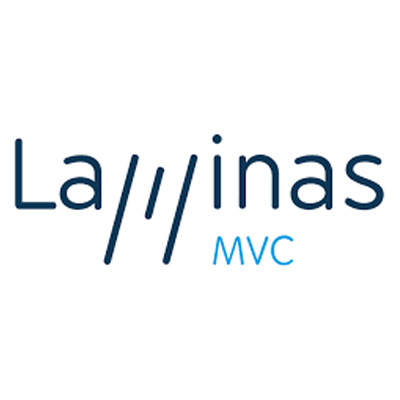
Formerly known as Zend Framework, Laminas emphasizes reusability with its modular components. While it might require more effort for smaller projects, it shines in providing excellent front-end technology support and integration with third-party components.
Pros:
- Modular and customizable components.
- Extensive database support.
- Reusability of components.
- Strong focus on security.
- Comprehensive documentation.
Cons:
- Increased complexity for smaller projects.
- Smaller community compared to some frameworks.
- Effort required for maintaining coding practices.
Why Should You Consider Laminas Framework?
- Excellent front-end technology support.
- Wide and active developer community.
- Seamless integration with third-party components.
- Built-in support for AJAX functionality.
7). Phalcon: Performance Redefined
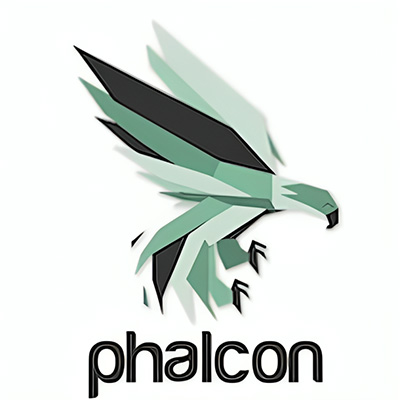
Phalcon stands out with its C-inspired coding style, offering blazing-fast performance and low resource consumption. It seamlessly integrates with other PHP libraries and frameworks, making it a developer’s delight.
Pros:
- Exceptional performance with low resource consumption.
- Seamless integration with other PHP libraries.
- Active and dedicated developer community.
Cons:
- Limited hosting support.
- Smaller community and ecosystem.
- Limited flexibility for customization and extension.
Why Should You Consider Phalcon?
- Blazing-fast performance and low overhead.
- Advanced security features.
- Uniquely written C-extension framework.
- Developer-friendly environment.
8). Slim Framework: A Micro Framework for APIs
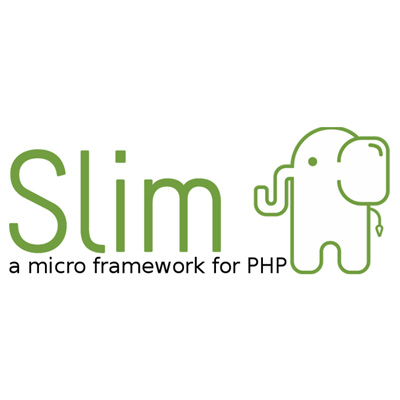
Slim Framework specializes in creating APIs with its lightweight and minimalistic nature. It’s an excellent choice for small web applications and shines in developing RESTful APIs and web services.
Pros:
- Lightweight and minimalistic nature.
- Straightforward and intuitive API.
- Flexible routing system.
- Robust middleware support.
Cons:
- Limited built-in features.
- Lack of opinionated structure.
- Smaller ecosystem compared to larger frameworks.
Why Should You Consider Slim Framework?
- Ideal for small web apps with rich functionalities.
- Perfect for developing RESTful APIs.
- Well-prepared framework documentation.
- Offers add-ons like HTTP Caching and Flash.
9). FuelPHP: Extensible and Secure
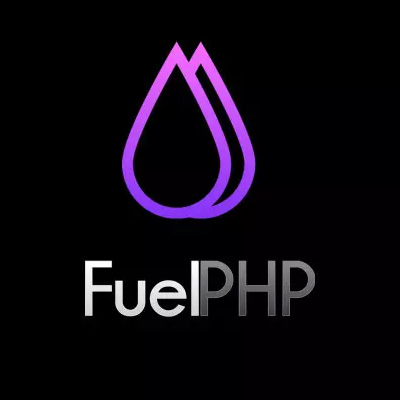
FuelPHP is known for its modular and extendable architecture. It prioritizes security, making it a suitable choice for secure web solutions. While it might have a smaller ecosystem, it’s a strong contender for those who need advanced MVC features and optimized authentication packages.
Pros:
- Powerful Object-Relational Mapping system.
- Robust security features.
- Hierarchical Model-View-Controller (HMVC) pattern.
- Flexible configuration system.
- Caching mechanisms.
Cons:
- Smaller ecosystem compared to some frameworks.
- Limited community support.
- Less frequent updates.
Why Should You Consider FuelPHP?
- Advanced MVC features and optimized authentication.
- High-performance application development.
- Strong focus on security features.
10). PHPPixie: High Performance in a Lightweight Package
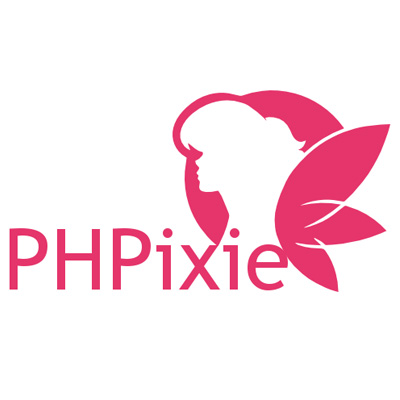
PHPPixie offers high performance and follows the HMVC pattern. It’s great for those who value simplicity, ease of use, and impressive routing systems.
Pros:
- Lightweight and fast performance.
- Seamless integration with Object-Relational Mapping.
- Built-in security measures.
- Simplicity and ease of use.
- Performance optimization features.
Cons:
- Smaller ecosystem compared to some frameworks.
- Limited community support.
- Slower update frequency.
Why Should You Consider PHPPixie?
- Intuitive and developer-friendly framework.
- Support for advanced HMVC architecture.
- Impressive routing system.
- Lightweight framework with MongoDB support.
Conclusion
Choosing the right PHP framework depends on your project’s requirements and your familiarity with programming concepts. Whether you’re looking for ease of use, advanced features, or exceptional performance, there’s a Latest Frameworks in PHP that suits your needs. Keep in mind that the best framework for you might differ from someone else’s choice. So, explore, experiment, and find the one that helps you craft stunning web applications with ease. Happy coding!

